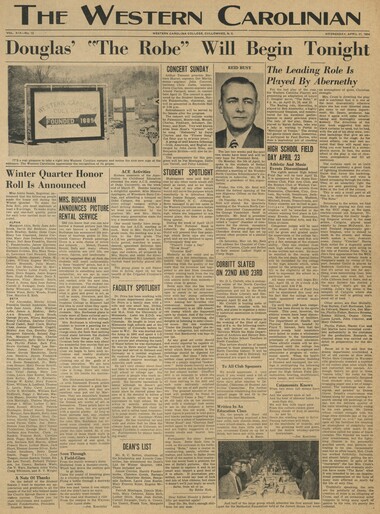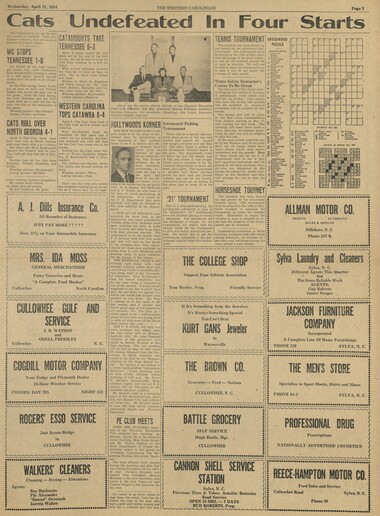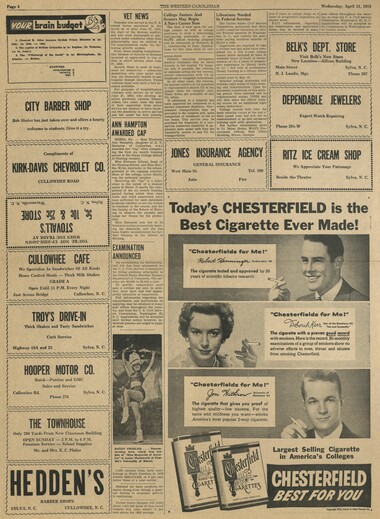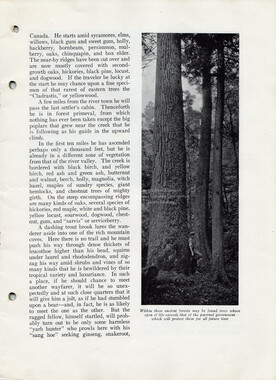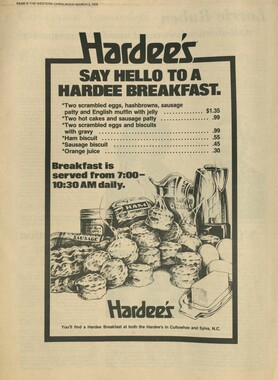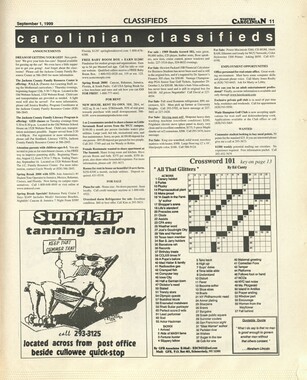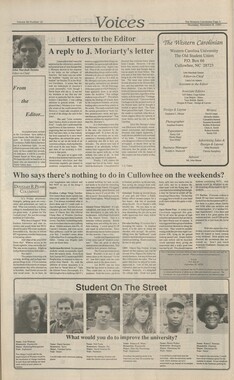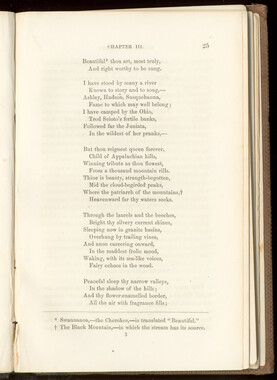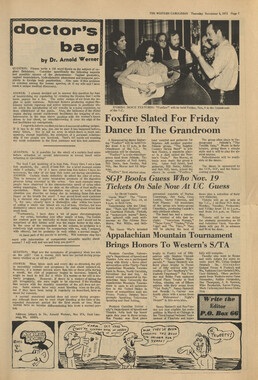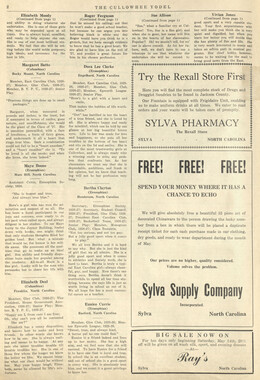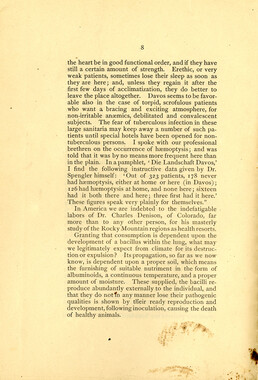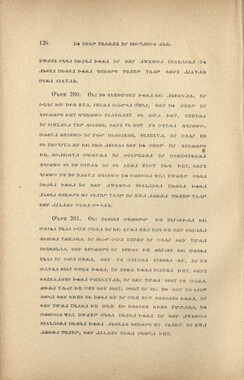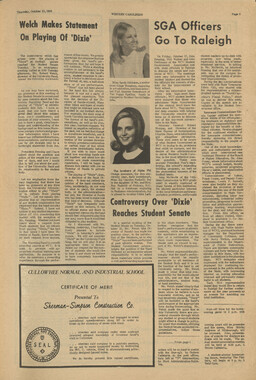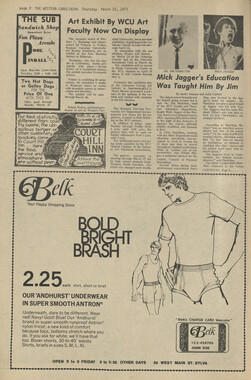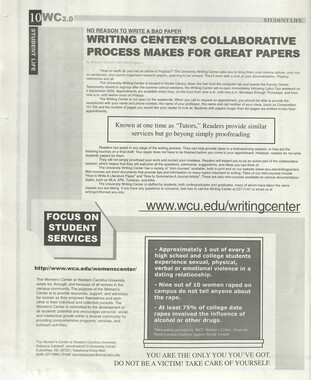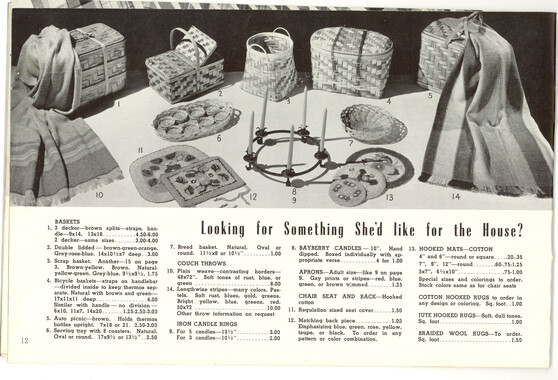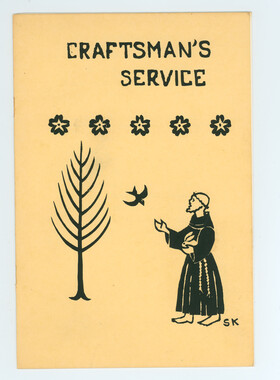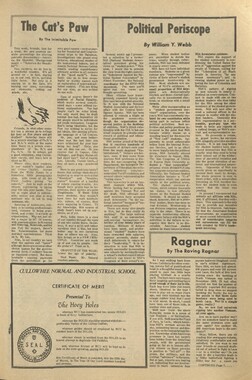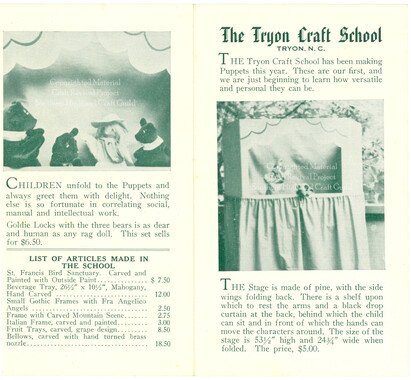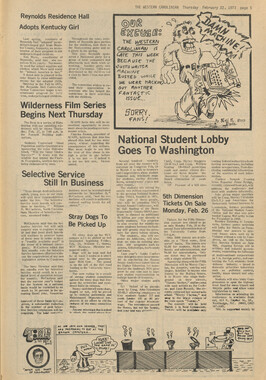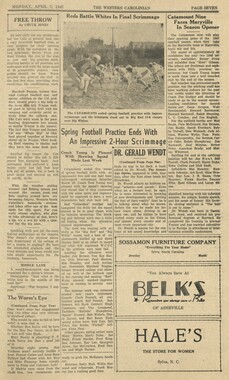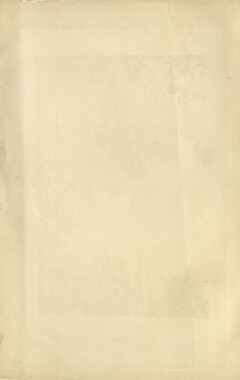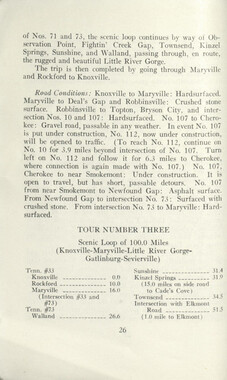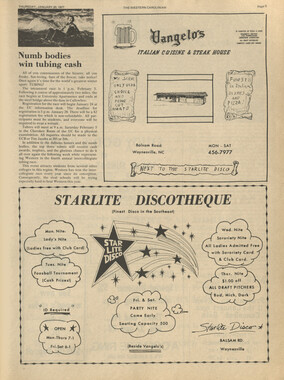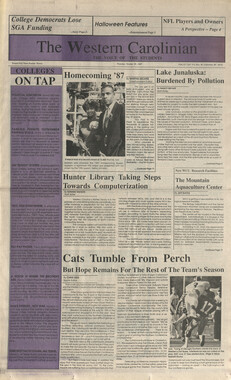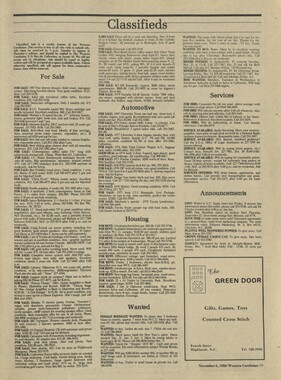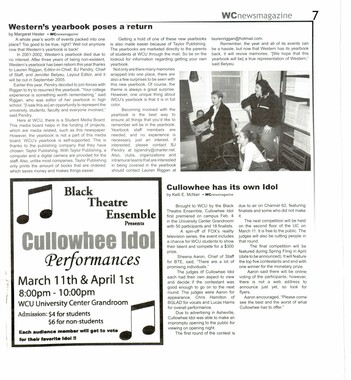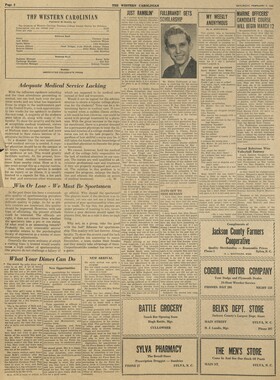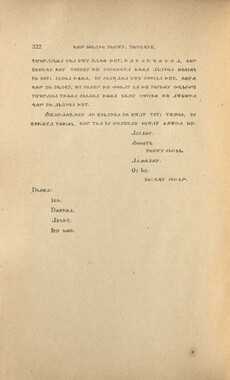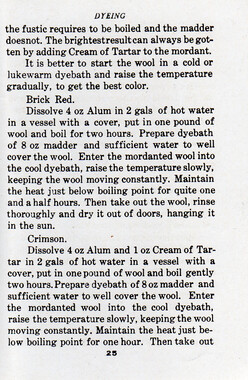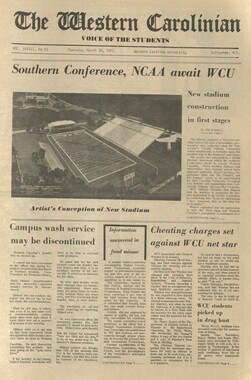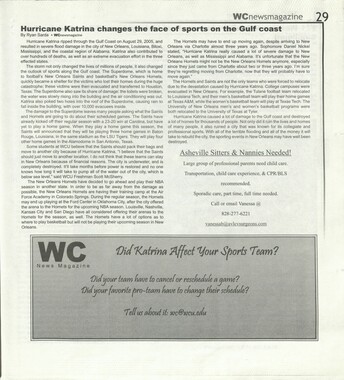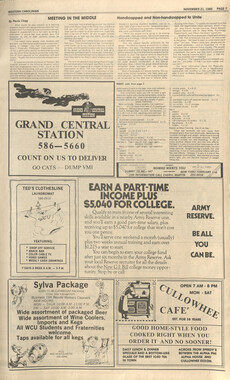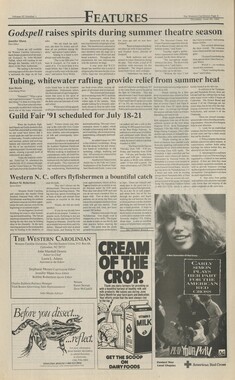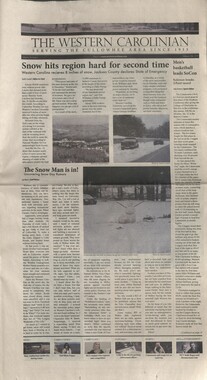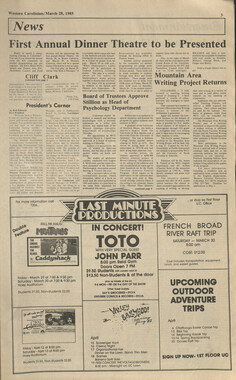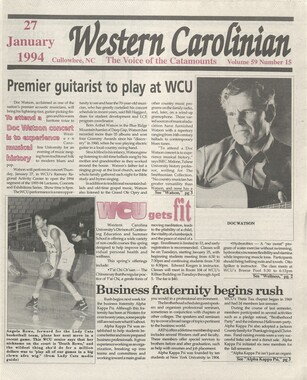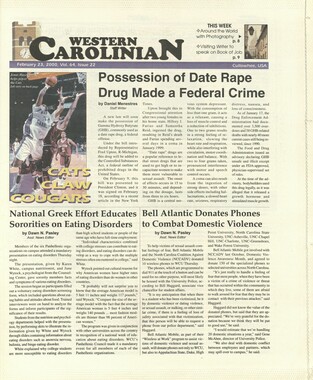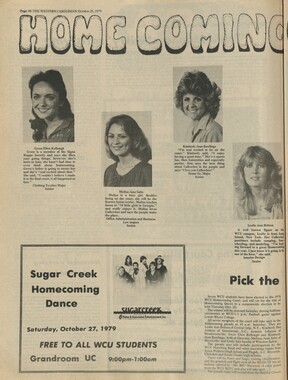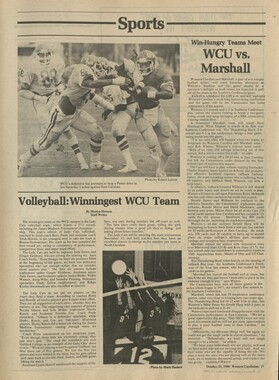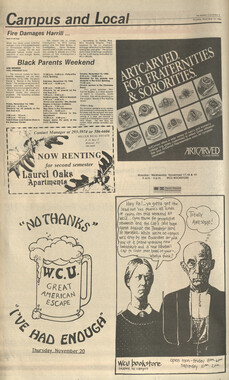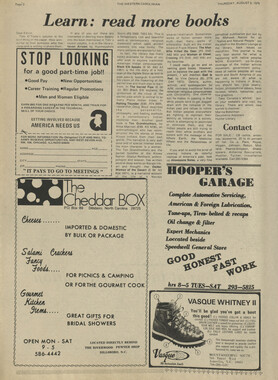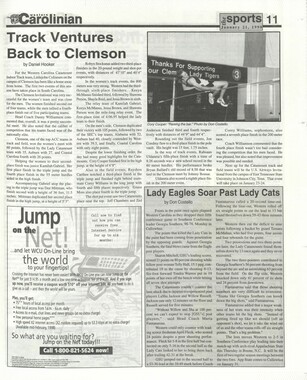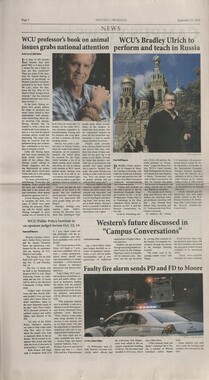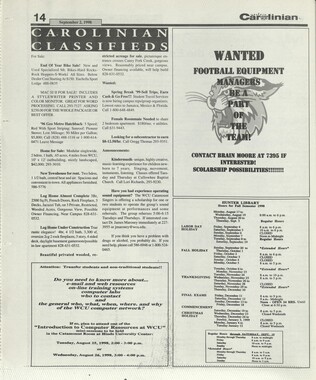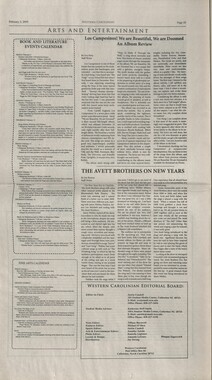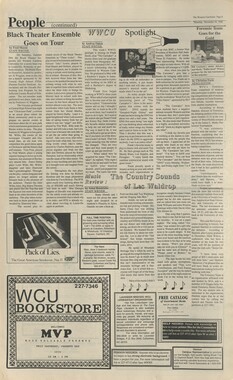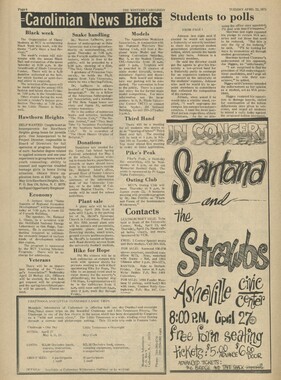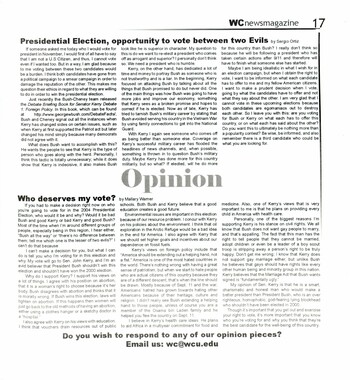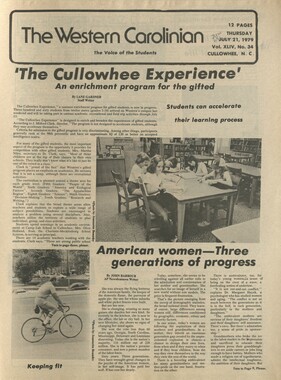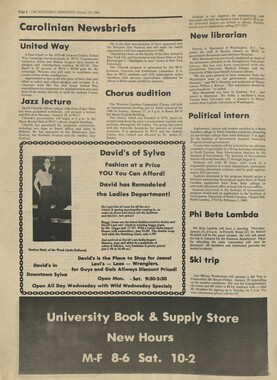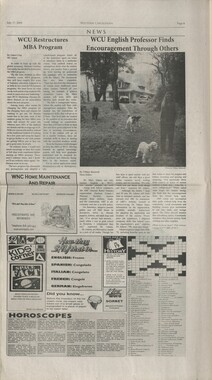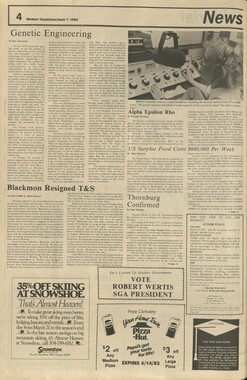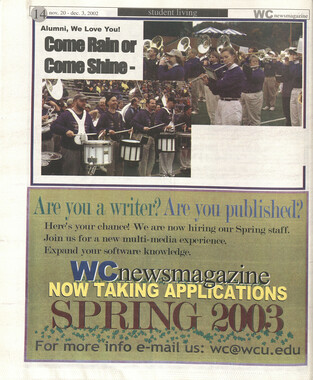Western Carolina University (21)
View all
- Canton Champion Fibre Company (2308)
- Cherokee Traditions (291)
- Civil War in Southern Appalachia (165)
- Craft Revival (1942)
- George Masa Collection (137)
- Great Smoky Mountains - A Park for America (3080)
- Highlights from Western Carolina University (422)
- Horace Kephart (973)
- Journeys Through Jackson (159)
- LGBTQIA+ Archive of Jackson County (89)
- Oral Histories of Western North Carolina (317)
- Picturing Appalachia (6617)
- Stories of Mountain Folk (413)
- Travel Western North Carolina (153)
- Western Carolina University Fine Art Museum Vitreograph Collection (129)
- Western Carolina University Herbarium (92)
- Western Carolina University: Making Memories (738)
- Western Carolina University Publications (2491)
- Western Carolina University Restricted Electronic Theses and Dissertations (146)
- Western North Carolina Regional Maps (71)
- World War II in Southern Appalachia (131)
University of North Carolina Asheville (6)
View all
- Allanstand Cottage Industries (62)
- Appalachian National Park Association (53)
- Bennett, Kelly, 1890-1974 (1463)
- Berry, Walter (76)
- Brasstown Carvers (40)
- Carver, George Washington, 1864?-1943 (26)
- Cathey, Joseph, 1803-1874 (1)
- Champion Fibre Company (233)
- Champion Paper and Fibre Company (297)
- Cherokee Indian Fair Association (16)
- Cherokee Language Program (22)
- Crowe, Amanda (40)
- Edmonston, Thomas Benton, 1842-1907 (7)
- Ensley, A. L. (Abraham Lincoln), 1865-1948 (275)
- Fromer, Irving Rhodes, 1913-1994 (70)
- George Butz (BFS 1907) (46)
- Goodrich, Frances Louisa (120)
- Grant, George Alexander, 1891-1964 (96)
- Heard, Marian Gladys (60)
- Kephart, Calvin, 1883-1969 (15)
- Kephart, Horace, 1862-1931 (313)
- Kephart, Laura, 1862-1954 (67)
- Laney, Gideon Thomas, 1889-1976 (439)
- Masa, George, 1881-1933 (61)
- McElhinney, William Julian, 1896-1953 (44)
- Niggli, Josephina, 1910-1983 (10)
- North Carolina Park Commission (105)
- Osborne, Kezia Stradley (9)
- Owens, Samuel Robert, 1918-1995 (11)
- Penland Weavers and Potters (36)
- Roberts, Vivienne (15)
- Roth, Albert, 1890-1974 (142)
- Schenck, Carl Alwin, 1868-1955 (1)
- Sherrill's Photography Studio (2565)
- Southern Highland Handicraft Guild (127)
- Southern Highlanders, Inc. (71)
- Stalcup, Jesse Bryson (46)
- Stearns, I. K. (213)
- Thompson, James Edward, 1880-1976 (226)
- United States. Indian Arts and Crafts Board (130)
- USFS (683)
- Vance, Zebulon Baird, 1830-1894 (1)
- Weaver, Zebulon, 1872-1948 (58)
- Western Carolina College (230)
- Western Carolina Teachers College (282)
- Western Carolina University (2008)
- Western Carolina University. Mountain Heritage Center (18)
- Whitman, Walt, 1819-1892 (10)
- Wilburn, Hiram Coleman, 1880-1967 (73)
- Williams, Isadora (3)
- Cain, Doreyl Ammons (0)
- Crittenden, Lorraine (0)
- Rhodes, Judy (0)
- Smith, Edward Clark (0)
- Appalachian Region, Southern (3032)
- Asheville (N.C.) (1945)
- Avery County (N.C.) (26)
- Blount County (Tenn.) (195)
- Buncombe County (N.C.) (1680)
- Cherokee County (N.C.) (283)
- Clay County (N.C.) (556)
- Graham County (N.C.) (238)
- Great Smoky Mountains National Park (N.C. and Tenn.) (525)
- Haywood County (N.C.) (3573)
- Henderson County (N.C.) (70)
- Jackson County (N.C.) (4924)
- Knox County (Tenn.) (35)
- Knoxville (Tenn.) (13)
- Lake Santeetlah (N.C.) (10)
- Macon County (N.C.) (421)
- Madison County (N.C.) (216)
- McDowell County (N.C.) (39)
- Mitchell County (N.C.) (135)
- Polk County (N.C.) (35)
- Qualla Boundary (982)
- Rutherford County (N.C.) (78)
- Swain County (N.C.) (2185)
- Transylvania County (N.C.) (270)
- Watauga County (N.C.) (12)
- Waynesville (N.C.) (86)
- Yancey County (N.C.) (72)
- Aerial Photographs (3)
- Aerial Views (60)
- Albums (books) (4)
- Articles (1)
- Artifacts (object Genre) (228)
- Bibliographies (1)
- Biography (general Genre) (2)
- Cards (information Artifacts) (38)
- Clippings (information Artifacts) (192)
- Copybooks (instructional Materials) (3)
- Crafts (art Genres) (622)
- Depictions (visual Works) (21)
- Design Drawings (1)
- Digital Moving Image Formats (2)
- Drawings (visual Works) (185)
- Envelopes (101)
- Exhibitions (events) (1)
- Facsimiles (reproductions) (1)
- Fiction (general Genre) (4)
- Financial Records (12)
- Fliers (printed Matter) (67)
- Glass Plate Negatives (381)
- Guidebooks (2)
- Internegatives (10)
- Interviews (822)
- Land Surveys (102)
- Letters (correspondence) (1045)
- Manuscripts (documents) (618)
- Maps (documents) (177)
- Memorandums (25)
- Minutes (administrative Records) (59)
- Negatives (photographs) (6090)
- Newsletters (1290)
- Newspapers (2)
- Notebooks (8)
- Occupation Currency (1)
- Paintings (visual Works) (1)
- Pen And Ink Drawings (1)
- Periodicals (194)
- Personal Narratives (10)
- Photographs (12977)
- Plans (maps) (1)
- Poetry (6)
- Portraits (4568)
- Postcards (329)
- Programs (documents) (181)
- Publications (documents) (2444)
- Questionnaires (65)
- Relief Prints (26)
- Sayings (literary Genre) (1)
- Scrapbooks (282)
- Sheet Music (2)
- Slides (photographs) (402)
- Songs (musical Compositions) (2)
- Sound Recordings (801)
- Specimens (92)
- Speeches (documents) (18)
- Tintypes (photographs) (8)
- Transcripts (328)
- Text Messages (0)
- A.L. Ensley Collection (275)
- Appalachian Industrial School Records (7)
- Appalachian National Park Association Records (336)
- Axley-Meroney Collection (2)
- Bayard Wootten Photograph Collection (20)
- Bethel Rural Community Organization Collection (7)
- Blumer Collection (5)
- C.W. Slagle Collection (20)
- Canton Area Historical Museum (2110)
- Carlos C. Campbell Collection (462)
- Cataloochee History Project (64)
- Cherokee Studies Collection (4)
- Daisy Dame Photograph Album (5)
- Daniel Boone VI Collection (1)
- Doris Ulmann Photograph Collection (112)
- Elizabeth H. Lasley Collection (1)
- Elizabeth Woolworth Szold Fleharty Collection (4)
- Frank Fry Collection (95)
- George Masa Collection (173)
- Gideon Laney Collection (452)
- Hazel Scarborough Collection (2)
- Hiram C. Wilburn Papers (28)
- Historic Photographs Collection (236)
- Horace Kephart Collection (861)
- Humbard Collection (33)
- Hunter and Weaver Families Collection (1)
- I. D. Blumenthal Collection (4)
- Isadora Williams Collection (4)
- Jesse Bryson Stalcup Collection (47)
- Jim Thompson Collection (224)
- John B. Battle Collection (7)
- John C. Campbell Folk School Records (80)
- John Parris Collection (6)
- Judaculla Rock project (2)
- Kelly Bennett Collection (1482)
- Love Family Papers (11)
- Major Wiley Parris Civil War Letters (3)
- Map Collection (12)
- McFee-Misemer Civil War Letters (34)
- Mountain Heritage Center Collection (4)
- Norburn - Robertson - Thomson Families Collection (44)
- Pauline Hood Collection (7)
- Pre-Guild Collection (2)
- Qualla Arts and Crafts Mutual Collection (12)
- R.A. Romanes Collection (681)
- Rosser H. Taylor Collection (1)
- Samuel Robert Owens Collection (94)
- Sara Madison Collection (144)
- Sherrill Studio Photo Collection (2558)
- Smoky Mountains Hiking Club Collection (616)
- Stories of Mountain Folk - Radio Programs (374)
- The Reporter, Western Carolina University (510)
- Venoy and Elizabeth Reed Collection (16)
- WCU Gender and Sexuality Oral History Project (36)
- WCU Mountain Heritage Center Oral Histories (25)
- WCU Oral History Collection - Mountain People, Mountain Lives (71)
- WCU Students Newspapers Collection (1923)
- Western North Carolina Tomorrow Black Oral History Project (69)
- William Williams Stringfield Collection (2)
- Zebulon Weaver Collection (109)
- African Americans (390)
- Appalachian Trail (35)
- Artisans (521)
- Cherokee art (84)
- Cherokee artists -- North Carolina (10)
- Cherokee language (21)
- Cherokee pottery (101)
- Cherokee women (208)
- Church buildings (190)
- Civilian Conservation Corps (U.S.) (111)
- College student newspapers and periodicals (2012)
- Dams (108)
- Dance (1023)
- Education (222)
- Floods (63)
- Folk music (1015)
- Forced removal, 1813-1903 (2)
- Forest conservation (220)
- Forests and forestry (1198)
- Gender nonconformity (4)
- Great Smoky Mountains National Park (N.C. and Tenn.) (181)
- Hunting (47)
- Landscape photography (25)
- Logging (122)
- Maps (83)
- Mines and mineral resources (9)
- North Carolina -- Maps (18)
- Paper industry (38)
- Postcards (255)
- Pottery (135)
- Railroad trains (72)
- Rural electrification -- North Carolina, Western (3)
- School integration -- Southern States (2)
- Segregation -- North Carolina, Western (5)
- Slavery (5)
- Sports (452)
- Storytelling (243)
- Waterfalls -- Great Smoky Mountains (N.C. and Tenn.) (66)
- Weaving -- Appalachian Region, Southern (280)
- Wood-carving -- Appalachian Region, Southern (328)
- World War, 1939-1945 (173)
Western Carolinian Volume 19 Number 12
Item
Item’s are ‘child’ level descriptions to ‘parent’ objects, (e.g. one page of a whole book).
-
-
The Western Carolinian VOL. XIX—No. 12 WESTERN CAROLINA COLLEGE, CULLOWHEE, N. C WEDNESDAY, APRIL 21, 1954 Douglas' ^The Robe" Will Begin Tonight IT'S a real pleasure to take a right into Western Carolina campus and notice the nice new sign at the entrance. The Western Carolinian appreciates the recognition of its gripes. CONCERT SUNDAY Arthur Tennent presents Barbara Shaver, soprano; Dot Martin, mezzo - soprano; John Conover, baritone; Chris Gates, soprano; Joyce Clayton, mezzo-soprano and Arnold Penland, tenor; in concert here April 25. The concert is sponsored by the Student Senate, Harold Funderburke, chairman, and will be presented in Reynolds Hall at 3:00 p.m. Refreshments will be served by the Senate after the program. The concert will include works by Falconieri, Monteveidi, Mozart, Charles, Pinkham, Schubert, Debussy, and Bizet. Two well known arias from Bizet's "Carmen" will be sung. "Habanera" by Joyce Clayton and the "Flower Song" (La fleur que tu m'avais jetee). A group of well known folksongs —Irish, American, and English arranged by John Jacob Niles, and Benjamin Britten—will also be included. The accompanists for this program will be Pat Montague, Eddie Lou Terrell, and Patsy Lindsey. REID BUSY Winter Quarter Honor Roll Is Announced Miss Addie Beam, Registrar, announced that the following people made the honor roll during the Winter Quarter. To make the Beta Roll, you must maintain at least a B average. To make Alpha, two and one-half quality points for each hour carried must be secured. ALPHA Margaret Akin, Betty Jean Ashbrook, David Hal Buckner, Anne Ruth Bradley, Bobby Gene Cope, Mary Lee Copeland, Janice Corzine, Mary Jane Dockery, Patricia Eways, Nell Rose Franklin, Harold C. Funderburke, James Garrison, Clarence Goode, Claude H. Greene, Barbara Gribble, Ella Rhea Hooper, Lawrence Carl Howard, Eloise Jarrett, Sybil Joyner, Petra K Lopes, William Eugene McClure, Dennis Monteith, Julia Moody, Jerry Lee Moore, Jane M. Morrison, Charles Louis Puett, Joan Rabb, Doris Rogers, Janet Rogers Ross, Hugh Robert Seay, Doris E. Sharpton, Wiley Howell Smith, Floyd A. Stone, Sara Jean Sutton, Carroll D. Swanger, Doris Ussery, Betty Whisnant, George Wilkins, Eileen Wood, Betty Woods, Frank Yow, Maurice E. Rich. BETA Pat Alexander, Shirley Allred, Franklin Donald Anderson, Elizabeth Jane Annis, John Winfred Ashe, James A. Blakley, Betty- Ann Braswell, Jarvis Brock, George Bryant, Wilma Buchanan, Nancy Callahan, Darlene Collins, Royal Cadell, Basil Clark, Shirley Cloer, Jeanne Elizabeth Cogdill, Shirley Ann Cox, Dorothy Deitz, Margaret Edwards, Roland English, Margaret Evans, Charles Faulkenberry, Sally Belle Ferguson, Phyllis Fisher, Jack Frei, Bruce Garland, Peggy Lee Harbour, James Fletcher Harris, James Steven Hendricks, Doris Ann Hendrix, James Frederick Henry, Mauriene O. Holton, Harold Reese Honeycutt, Jr., Betty Jean Hooper, Mary Dorcas Howell, Benjamin Jackson, Rebecca Jessup, Virgil Jessup, Mary Lou Jones, Laura Jean Keeter, Martha Jean Kelley, John P. Kimberly, George W. Kirby, Mary Frances Kiser, William A. Ledford, Thomas L. Lewis, Patsy Carol Lindsey, Curtis E. McCombs, William Earl McElrath, Peggy J. McLean, Matilda Maney, Dorothy Martin, Patricia Mattingly, Thelma Mayfield, George I. Miller, Luther C. Mit- chem, Russell Mitchell, Patrick Montague, Robert Moore, Eleanor C. Morgan, Sara Morris, Betty Joan Nelson, Duane Oliver, Mary Osborne, Harold Vance Parris, Raymond Payne, Celia Jan Perry, Bonnie Joan Phillips, Hoyt Homer Picklesimer, George Mack Pigg, Barbara Ann Proctor, Clara Jo Rankin, Frances Reid, Caroline Reid, Peggy Rich, Kenneth Roberts, Barbara Nell Shaver, Alfred Francis Shaw, Luther Shaw, Jack Short, Eleanor Jeanne Silver, Ruby Ivalee Smathers, Betty Deane Smith, Peggy T a 11 e n t, June Teague, James Rankin Teeter, Eddie Lou Terrell, Richard Thompson, Ira Ussery, Barbara Wade, Joe V. Ware, Barbara Anne Wells, Craig Whitmire, and B. T. Wright. The Leading Role Is Played By Abernethy For the last play of the year, the Western Carolina Players are presenting an adaptation of Lloyd C. Douglas' novel, "The Robe," at 8 p. m., on April 21, 22, and 23. The heading role, Marcellus, is played by Bob Abernethy, a highly experienced thespian, and remembered for his excellent performances in many previous plays. The lady of the play, Diana, is played by Sarah Sutton, who was a lady in waiting to Portia in "Merchant of Venice." The strong but gentle Greek slave, Demetrius, is portrayed by Paul Burton, who does a marvelous job of creating MRS. BUCHANAN ANNOUNCES PICTURE RENTAL SERVICE Did you know that you can now borrow a framed picture just like you can borrow a book? Mrs. Buchanan has announced the purchase of fourteen prints of Nin- teenth Century French paintings. There is a wide choice of artists and subjects . . . Monet, Picasso, Renoir, Dufy and many others, while subjects are still life, sea scenes, figures, and landscapes. It is expected that at first the students will react unfavorably to these "modern" prints, but it is a known truth that when we are introduced to something new and unfamiliar, we are apt to react against it, but through association and contact with the new idea, this is overcome. The student can gain the great and eternal principles of life by associating with what is good and great in art, as well as music, literature, and the nobler arts. The founders of Stephens College in Missouri had this idea in mind when they opened a picture rental service to the students. Mrs. Buchanan plans to create more of these cultural services to the students of this college. Mrs. Buchanan is allowing each student to borrow a painting for a quarter. There will be no rental charge since she feels that nothing should stand between the student and the better things of life. Our librarian feels the same way about the wonderful free movies that are shown in the Gallery. I feel that When we begin to have such influences and readily available services on our campus, we are attaining one of the goals of a college education. We are here to learn other things than how to ake a living; there are other . alues in life beside the mercenary ones. Mrs. Buchanan opened this service with Ninteenth French artists because she obtained a good bargain in the prints, and they are excellent ones put out by Mar- boro. They are exquisitely framed by a young man in Asheville, and the frames are works of art in themselves. These prints have no glass over them, but are sprayed with a special plastic. As long as these pictures last, any student may borrow one for the rest of the year,'Mrs. Buchanan has ordered some classical and more conventional prints for those that prefer the time tested. So, if you are tired of those blank walls in your room, here's a chance that Is both approved of and good, to make your room a more liveable place. ACE Activities Sixteen members of the Association for Childhood Education attended the state A.C.E. meeting at Duke University, on the week end of March 27. Besides hearing a delightful speaker, Miss Mauree Applegate, of Wisconsin State College, and attending a banquet on Duke Campus, the group saw every college campus within a short driving distance. This latter treat was provided by the gracious Mr. and Mrs. Hoyle, whose many generosities made the trip a memorable one. One would hardly have recognized the last A.C.E. meeting as such. Held in Mrs. Hoyle's first grade room, the meeting was a return to the first grade. The A.C.E.'ers participated in an activity period, marched to music, danced, consumed delicious ham biscuits, potato salad, devilled eggs, and cookies, all prepared by Mrs. Hoyle; and under the direction of President Bill Ledford the rhythm band joyfully played off- key. The group plans to sell Easter lilies in Sylva, April 10, for the benefit of the Crippled Children's Drive. FACULTY SPOTLIGHT Dr. Price has been working with the music department since 1950. Dr. Price is a family man with a wife and one small boy, Dickie, age 4. Dr. Price received his B.S. and M.A. from the University of Minnesota. Later his E.D.D. was secured from the University of Colorado. He taught in Iowa and Minnesota high schools and at the University of Colorado before he came to W.C. He was drafted into the Army in 1941 and spent 4 1-2 years in the Army being inducted as a private and attaining the rank of Major before he was discharged. He was in three major battles in Europe and served in Holland and Germany as a combat engineer. He received the Purple Heart. He still attends reserve meetings in Asheville each week. He isn't very choosy about food and likes to teach young people of high school or college age. His pet peeve is people who teach instrumental music who aren't prepared. His favorite recreation is tennis although he doesn't get much time to play. He has liked music since he started piano lessons at 8. He decided to follow a career in music when he was a sophomore in high school. He is active in outside activities; he conducts the Methodist choir in Sylva, and is called upon frequently to judge music contests. He just finished one at Gardener-Webb College. He has travelled far and wide and states that he likes the climate here and in Colorado although Colorado is somewhat dryer. Furthermore he enjoys teaching music! STUDENT SPOTLIGHT A Note Of Thanks On the behalf of the Student Senate I want to express my appreciation and gratitude to all the people of the hill who helped make the Charlie Spivak Dance a tremendous success. Thank you ' for your helpfulness and support! Harold Funderburke, President Student Senate. Seen Through A Field-Glass From the stately women's dorm Sheltered from a thunder-storm, Which had drove the restless gals to go inside, Came the sound of breaking glass As a whiskey-drinking lass Flung a bottle through a doorway open wide. She was mad 'cause it was empty, And she didn't have no more, So she quickly went outside To the road and thumbed a ride From the campus to the Waynesville liquor store. —Jon Koscielny DEAN'S LIST Mr. R. C. Sutton, chairman of the Scholarship and Awards Committee, has announced the Dean's List for Winter Quarter, 1954. Those included are: Janice Corzine, Harold Funderburke, Clarence Goode, Barbara Gribble, Mauriene Holton, Benjamin Jackson, Laura Jean Keeter, Mary Frances Kiser, Eugene McClure. Patrick Montague, Dennis Monteith, Mary Osborne, Eddie Rich, Luther Shaw, Saia Jean Sutton, Carroll Swanger, Doris A. Ussery, Ira Ussery, Frank Yow, Margaret Akin. Shakespeare once said that a rose by any other name would still smell as sweet, and so we think that a lead of any other nature would still serve the purpose which manifestly is to introduce Miss Bette Jeanne Reagan, sophomore from Whittier, N. C. Although Bette managed to get her name in the Western Carolinian once before for entering an art contest in Raleigh, where she happened to win second place, this time it's something special. During the week of April 12-17 at the First National Bank in Asheville the Asheville Artist Guild will present four fine paintings which Bette says are very good, and we are inclined to agree. Picturesquely they are: "There'll Come a Day" "River Road" "Glorious End" Modestly as she could and as naively as is her inheritance, she admits that she painted them. Gathering from the quality of her work that the reviewer had happened to see and from comment already coming back from the big city, it seems that at this confession admits more than modesty— comes close to genius. Bette says that she has loved painting all her life, but still manages to sneak in an occasional hour with her stamp collection which is closely akin to the brush love. Among her favorites (for economical reasons smothered with sentiment) is an 1853 American stamp which she happened upon by chance. And if the twelve hours still bears stretching, she delights in listening to semi-classical music. Her one weakness, "Under the Double Eagle" she refused to categorize, but culturally hinted that Beethoven was tops on her list. As any good art critic should and every reporter be capable of, an analysis of the mood and tone detail which Bette catches in her paintings should be digested for the reader. But since ? falls into neither class, permit the observations of a simply inspired "looker- oner." Bette draws heavily on her mountain home and its background for her subject matter. Deserted Mill is an example in which she pictures an old mill by a stream; all lines moving to the mill and each color delicately subdued through the use of soft pastel colors. The greatest amount of contrast will probably be found in the "There'll Come a Day." Here an old lady sits on her doorstep and with a nostalgic look seems to see in the distance a better home than this old world. The aged figure is painted in bold grays and blacks perhaps suggesting age, and maybe a sense of hopelessness. "River Road" and "Glorious End" switch again to the pastoral theme and are highly suggestive of romantic strolls and tourist brochures. Fortunately the story doesn't stop there. Bette finds time to work on the costumes in the forthcoming "Robe," takes a course in woodcarving, paints, whittles on leather, and listens to Spike Jones Truth of the matter is that inspiration has never been a problem for one of Bette's pictures. She has the talent to capture it and in no small way, impart a good deal of it to others. If journalism permitted, we could say best of luck and lots of blue ribbons, but since it doesn't we'll just imply as much. .... Bette, from all of us. By Eddie Rich. The last two weeks and the next two weeks have been and will be very busy for President Reid. On Monday, the 5th of April, he spoke to the students of Bethel High School. Monday the 12th he attended a meeting of the Western North Carolina Schoolmaster's Association in Asheville. Mr. W. B. Harrill is president of this organization. Friday, the loth, Mr. Reid will attend the formal opening of the new Highway Offices on the Webster Road. On Tuesday, the 27th, the President will attend the Quarterly meeting of the Western North Carolina Associated Communities at the George Vanderbilt Hotel in Asheville. Mr. Reid is president of this organization, which may be called a "super" chamber of commerce for the eleven mountain counties. The group organized the Cherokee drama and has set up several other projects of a similar nature. On Saturday, May 1st, Mr. Reid will address the Chamber of Commerce of Canton, Clyde and Bethel at their annual Ladies' Night at Camp Hope. CORRITT SLATED ON 22ND AND 23RD Mr. D. L. Corbitt, who is managing editor of the North Carolina Historical Review, a quarterly- publication put out by the North Carolina State Literary and Historical Association, will be on this campus April 22 and 23. Mr. Corbitt is touring some of the Western counties with his wife, and plans to organize a county historical association in Graham County. He will arrive on the campus in the evening of the 22nd of April and at 8 a. m. the following morning, will lecture on the theme "Services Which the State Department of Archives and History Renders the Public School Teachers in North Carolina." This lecture should be of special interest to those planning to teach North Carolina history. It will be given in room 309 in Stillwell. All interested are urged to attend. To All Club Sponsors We would appreciate it very much if you would send a list of all newly-elected officer within three days after election to Dr. Grieder, Chairman of Student Ac tivities Committee. For further information concerning this matter consult pages 59 and 63 in the 1953-54 Student Handbook. Written In An Education Class We, the people of these old backwoods having acquired a few new stills, new shootin-irons, and a new school-marm, do ordain and establish this here little note to you revenoors: Come on up for a drink, but leave our stills alone. R. K. Revis. HIGH SCHOOL FIELD DAY APRIL 23 Athletic And Music Events Discontinued The eighth annual High School Field Day will be held April 23. It is sponsored by the Home Economics Club, Fine Arts Club, and the Science Club of Western Carolina College. High schools from Buncombe, Cherokee, Clay, Graham, Haywood, Henderson, Jackson, McDowell, Macon, Madison, Mitchell, Swain, Transylvania, and Yancy counties are invited to par- t i c i p a t e. Engraved permanent trophies will be' awarded to the schools winning first place in Literary Events, Home Economics, Fine and Industrial Arts, and Exhibits division. Competent judges will be used for all events. All written tests will be given and graded under the supervision of the college faculty. Tests will be used that will give a fair message of the student ability. Only one student from each high school may participate in one written test event. He must be enrolled in the course with which the test deals. Special forms will be furnished by the college to the high schools which, when signed by the principal, will certify to the eligibility of the student to represent the school in a particular test. All these events will begin Friday, April 23, at 10 o'clock A.M. and last until 4:30 P.M. The Music Section of Field Day- will be eliminated this year due the fact that the college has already sponsored several music festivals. Up until this year keen competition has been shown in the sports events. This year, however, the athletic events have been discontinued due to lack of facilities. The Department of Health and Physical Education, headed by Floyd T. Siewert, feels that the athletic events held heretofore have failed to make a wholesome contribution to the fundamental principals of physical education. These athletic events will be discontinued until the college has adequate facilities to organize and administer a program of extramural sports. When the health and Physical Education Building is finished and equipped, the college is anticipating the following co-recreational sports in the program for High School Field Day: badminton, bowling, shuffleboard, table tennis, and volleyball. an atmosphere of quiet, Christian strength. Mrs. Crum is directing the play and is confident that it is one of the most dramatically effective plays she has ever directed since she came to our drama department. Mr. Deans, producer, has done it again with some breathtaking and thoroughly unusual Scenery. The directions of the play book suggested that only black curtains be used, but he had, with the aid of his shop crew, created backdrops that give an unusual depth to the stage. As for sound effects, you may rest assured that they will equal anything you ever heard in a stereophonic movie. In face, the entire eflect of the play is one of cinerama, sterophonics and 3D all combined. The curtains open on an unlit stage—and suddenly a great flash of lightning illuminates the crucifixion that forms the backdrop. Tbe thunder rolls and wind is heard screaming through the rocks. Then in an unearthly light the men are seen gambling for the Robe at the foot of the crosses. This is only a small part of all that is in store for those who see "The Robe." Catamounts Knows When two more full moons havei past And the quarter ends at last And the heat of summer bakes the mud-flats dry, We will flee with rapid pace From this culture-ridden place Raising clouds of dust in passing, by and by. Down the winding road to Sylva Passing motorists will stare, At the multitude of thumbs, and the grinning teeth and gums. And the festive whiskey-parties everywhere. —Jon Koscielny Dear Editor: Should a father of fifty get married again? Dear Sir: No, that's enough children for any man. Just half of the large group which attended the first annual banquet for the Methodist Foundation held at the Jarrett House last week. Returning to the actors, we find Eddie Rich playing his first role on the WCC stage, as the aged, crackle-voiced old Emperor, Tiberius. Helping the madly laughing Emperor around is the mad prince, Caligula, played most adeptly by James McJunkin. Arnold Penland dramatically portrays Stephen, who is stoned to death in the streets, and whose death makes a very dramatic scene. Jimmy "Crocker" Harris finds outlet for a dogmatic point of view and some good acting in the role of Pontius Pilate. This is Jim's first appearance for the WCC Players, but had already made a thespian's mark by virtue of this part. Senator Gallio is played by Roderick Galloway who proves that it's never too late for anything, even memorizing lines. Into Capri some rain must fall, but Julia Calhoun beat it there, and as the sexy Salome has started a "heat wave," that's got 'em all cooking. Julia's big scene is the banquet of Caligula where she succeeds so well in getting one's mind off of food. Other actors are Dan Mullally, Tom Burton, Curt Buchanan, Linda Colvard, Naomi Cox, Dot Martin, Phyllis Fisher, Bernice Brooms, Robbie Hillard, Duane Oliver, Laura Lynch, John Conover, and Mary Osborne. Phyllis Fisher, Naomi Cox and Dot Martin have recreated excellent authenticity in the costumes for the production. Research in classical dress was carried out in detail in preparation for the designs. Never let it be said that the drama department overlooked a bit of old canvas or shoe soles. Wellco Shoe Company in Waynes-- ville graciously donated a number of old rubber shoe soles which the cast converted into sandals. Although there's no gold in them "canvas hills," the rocks for the first scene were specially designed from chicken wire, news items, wrapping paper and a lot of imagination. The backdrops were designed, and painted by Duane Oliver. Duane's creativeness was helped along by some exacting research among old paintings of the day, but the delicate quality of the color blending is strictly owing to his own genius. Mr. Deans whose valiant struggle with the stage crew reminds one of the old theme "good vs. evil," has called upon all his faculties for creating an atmosphere of simplicity and depth which adds much to the otherwise called for scene of black curtains. The thunder we leave to your creativeness, but the lightning illusion is his personally guarded secret, and permits revealing to no one. Occasionally seen but so often heard, Mrs. Crum has worked faithfully, furiously, and almost fatally getting the actors in character. In spite of the "characters" she has Mrs. Crum's interpretations and dramatic abilities have made "The Robe" what it was intended to be—an inspirational presentation of the lives of many men affected so much by the life of only One. Truthfully speaking-, the sets are the products of Deans, the creation of roles is an offspring of Crum, and if an occasional actor happens to bring some spark of genius to his role, it's purely incidental.
Object
Object’s are ‘parent’ level descriptions to ‘children’ items, (e.g. a book with pages).
-
The Western Carolinian is Western Carolina University’s student-run newspaper. The paper was published as the Cullowhee Yodel from 1924 to 1931 before changing its name to The Western Carolinian in 1933.
-
